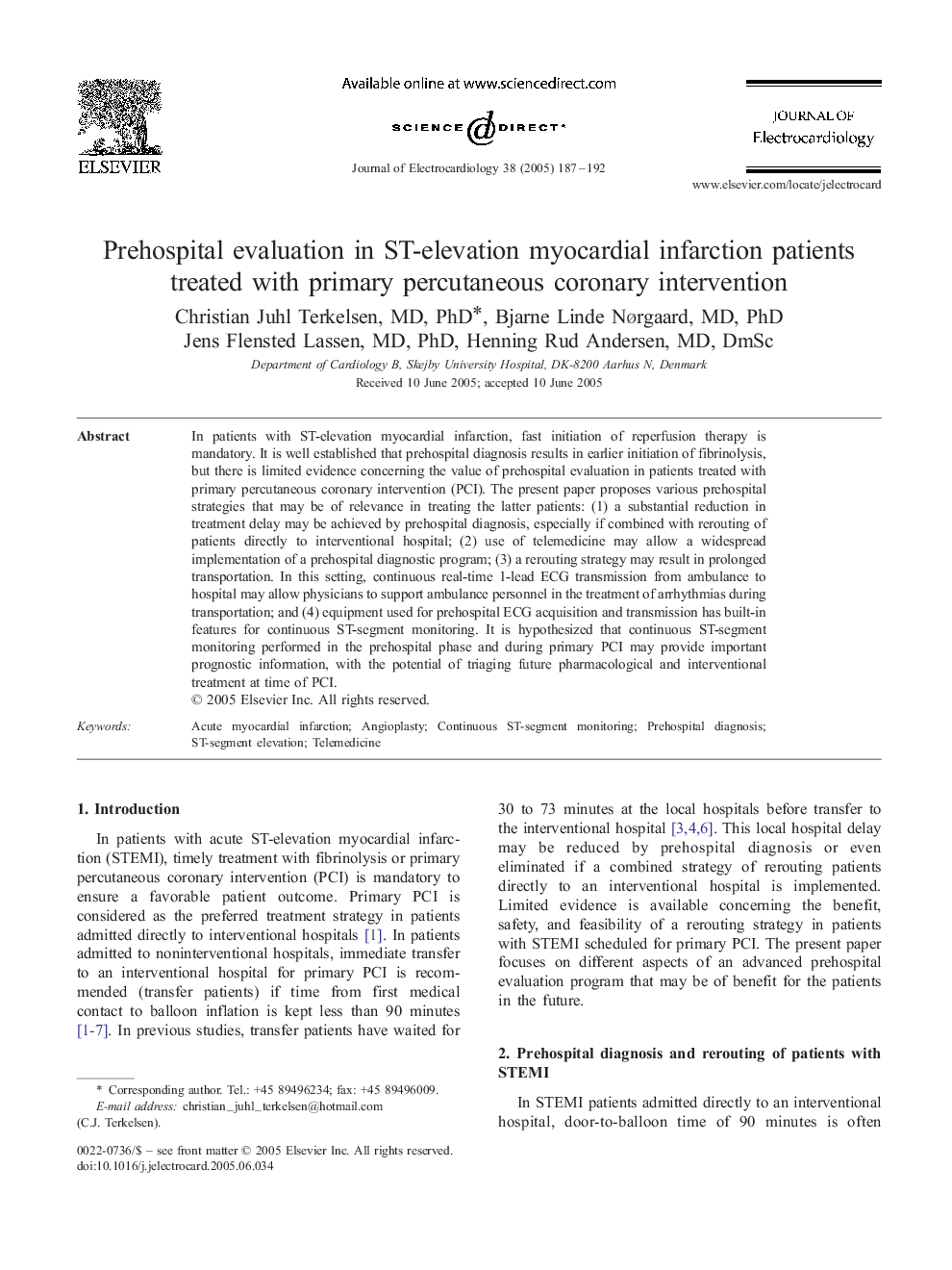| Article ID | Journal | Published Year | Pages | File Type |
|---|---|---|---|---|
| 9171725 | Journal of Electrocardiology | 2005 | 6 Pages |
Abstract
In patients with ST-elevation myocardial infarction, fast initiation of reperfusion therapy is mandatory. It is well established that prehospital diagnosis results in earlier initiation of fibrinolysis, but there is limited evidence concerning the value of prehospital evaluation in patients treated with primary percutaneous coronary intervention (PCI). The present paper proposes various prehospital strategies that may be of relevance in treating the latter patients: (1) a substantial reduction in treatment delay may be achieved by prehospital diagnosis, especially if combined with rerouting of patients directly to interventional hospital; (2) use of telemedicine may allow a widespread implementation of a prehospital diagnostic program; (3) a rerouting strategy may result in prolonged transportation. In this setting, continuous real-time 1-lead ECG transmission from ambulance to hospital may allow physicians to support ambulance personnel in the treatment of arrhythmias during transportation; and (4) equipment used for prehospital ECG acquisition and transmission has built-in features for continuous ST-segment monitoring. It is hypothesized that continuous ST-segment monitoring performed in the prehospital phase and during primary PCI may provide important prognostic information, with the potential of triaging future pharmacological and interventional treatment at time of PCI.
Related Topics
Health Sciences
Medicine and Dentistry
Cardiology and Cardiovascular Medicine
Authors
Christian Juhl MD, PhD, Bjarne Linde MD, PhD, Jens Flensted MD, PhD, Henning Rud MD, DmSc,
